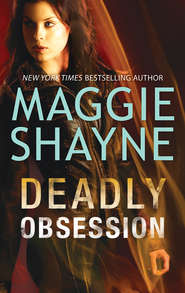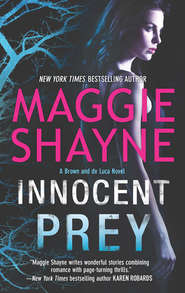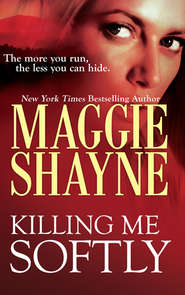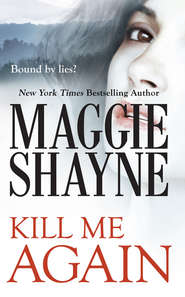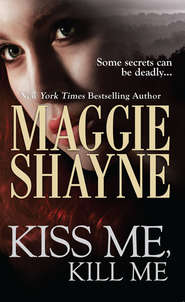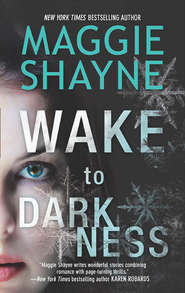По всем вопросам обращайтесь на: info@litportal.ru
(©) 2003-2025.
✖
Daughter of the Spellcaster
Автор
Год написания книги
2019
Настройки чтения
Размер шрифта
Высота строк
Поля
Paul just stood there blinking at him. He ran a hand over his bristly chin and blinked. Ryan thought there were tears forming in his eyes behind those Steve Jobs glasses he insisted on wearing.
“Just remember, not a word to anyone, okay? I’m a silent partner. Though I hope you won’t mind if I come around to watch your team in action. I’m as excited about affordable solar energy for everyday Joes as you are.”
“I don’t understand you,” Paul said softly. “I mean, yes, of course I agree to all of that, and thank you. Thank you a million times over.” He cleared his throat, looked down into the glass he held in one hand and had yet to sip from. “But why do you want to be so secretive about it? I mean, come on, Ryan. Wouldn’t it help your image to be known for funding a project to put solar energy within the reach of every American household?”
Ryan smiled. “Help it? It would destroy it.”
Paul blinked. “But—your image is that you’re a spoiled, self-centered, overly indulged, lazy playboy.”
“Exactly. And now, if you don’t mind, I’m about to go play that role to the hilt. See you tomorrow.”
Frowning and shaking his head in bewilderment, Paul muttered good-night, then turned and headed for the hallway and the curving red-carpeted staircase beyond.
Ryan watched him until he was out of sight, just to be sure he didn’t get waylaid by anyone demanding to know who he was and what he did. If his father found out, he would want in. Because though he’d ostensibly walked away from everything, he still had that profit-seeking missile inside him, and he could smell money to be made even from a mountainside in Tibet. He would just order his “people” to handle it—buy Paul out, make him an offer even he couldn’t refuse, and then Paul would see his beautiful, world-saving, idealistic notions slowly taken over by profit-seeking bottom-liners who would turn them into something ugly but lucrative.
Besides, Ryan needed to be part of a few projects where he could be his own man, completely free of his father’s shadow.
Once Paul was in the clear, Ryan made his way through the throng, pausing to return the greetings of all those in attendance, most of whom disapproved of him and made no secret about it, not that he cared, to his father, who stood out even in this crowd of standout individuals.
Ryan had inherited his height from Ernst, who was broad-shouldered and narrow in the hip. In a tux, the man could stop traffic and impose palpitations on female hearts of any age, race or, Ryan suspected, sexual orientation.
But he didn’t care. As far as he knew, Ernst hadn’t been with a woman since his wife, Sarah. Since her death twenty-two years ago, when Ryan had been eleven, Ernst had never been seen, photographed or even rumored to be dallying with any other woman. He must either have gone celibate or been impeccably discreet. Ryan didn’t see him enough to know which, because, as far as he was concerned, Ernst had also lost his mind at that time. His love for Ryan’s mother had been—all-consuming. Too strong. In the end it had destroyed him.
You wouldn’t know it to look at him. He was still a billionaire, still one of the most striking, fascinating men in the world, but a part of him had died that day. The good part.
Beside Ernst, as always, was Bahru, his “spiritual advisor.” He always wore red-and-white robes, was bone-thin, and both his hair and his endless beard of thick, dark dreadlocks had puffs of white showing through here and there. His age was impossible to determine, but for the first time Ryan thought he was showing signs of aging.
Ryan nodded at Bahru, who gave him a pressed-palm “namaste” bow in return. Then he extended a hand toward his father. “Congratulations, Dad.”
“Thank you, Ryan.” His father took his hand in a firm shake and lifted his free arm as if to embrace him, but then sort of eased off and settled for a shoulder pat right at the end.
Awkward. But that was just how things were between them. His father had abandoned him, motherless and eleven, to go off with his guru. He’d put a gulf between them, and it had only widened since.
Then Ryan turned his attention to the actual reason he’d crossed the room to begin with. The gorgeous female. He didn’t look her in the eye but let his gaze stay lowered while he clasped her hand and brought it to his lips. “Ryan McNally,” he said, before he kissed the back of that hand.
Then he straightened and met her eyes.
She stared at him, her big green eyes getting even bigger. She looked at him almost as if she recognized him, but he was damn sure he’d never seen her before. That he would have remembered. “It’s you,” she whispered, and then she jerked her head to the left, as if someone standing next to her had said something.
But no one was standing there.
She tugged her suddenly cold, suddenly trembling hand free of his and said, “Um, I— Lena. Magdalena Dunkirk. I have to go.”
Turning, she hurried away, then stopped and looked over her shoulder. “I’m so sorry. It was lovely to meet you.”
Then she was gone, hurrying through the ballroom in heels that should have made speed impossible, while Ryan kept his eyes on her ass the entire way. The dress hugged it tight enough to show what a really nice ass it was.
“Was it something I said?” he asked, turning back to his father only after she was out the door.
“Maybe your reputation preceded you,” Ernst said. “But that’s just as well. She’s a nice girl. I wouldn’t want you breaking her heart.”
“I don’t really want anything to do with her heart,” Ryan said.
I should have known right then that she was trouble, he thought. Should have steered clear of her at all costs.
But how could he have known that she would be the one to break his heart? For the first and only time in his life.
She had run away after a nearly-two-month-long relationship that had been sheer fire because he hadn’t become serious about her fast enough for her liking. At least that was the explanation he’d constructed in his mind as he’d tried to figure out what had happened. He’d always gone out of his way to be very clear with every woman, right from the start, that he was not the getting serious type. He’d tried even harder to play the playboy for Lena’s benefit. The more she got under his skin, the harder he played the role. Apparently she’d realized she was making no progress and walked.
The ironic part was, she was the one woman he’d ever been with who might have had a shot at making him want to get serious. If she’d waited around, maybe…
But in the end, he knew it was for the best. He never wanted to find himself mired in grief the way his father was. To love someone so much that he fell apart when she left. Hell, he’d had a taste of it, the sleepless nights, the recriminations, the missing her, the getting sappy every time any TV show or radio song or meal reminded him of her. If it had been that bad after two months, he’d definitely been heading for trouble. Doing exactly what he’d sworn he would never do.
It was good that she’d left. Now he was back on track again, cool and free, and not caring. Playing the playboy. It was easier to maintain that image without her.
The crowd of people filling the pews of St. Pat’s were muttering, which was his signal to stop reliving the past and start paying attention again to his father’s funeral service. It didn’t matter anyway. She’d dumped him and run away. It was over. She had come here to pay her respects to his dad. It was the decent thing to do, and she’d always been decent.
The priest had finished, and the pallbearers were moving up to take their places beside the coffin. Bahru and Ryan were the lead pair, so he had to get in gear. Reaching the front, where the casket rested on a stand, he took hold of the brass handle. It was cold to the touch, and the coffin wasn’t as heavy as he would have expected it to be. Then again, there were six of them. The other four were all on his father’s board of directors.
Fine showing at the end of a life. An estranged son, a Hindi con man and a handful of business partners as pallbearers. That said a lot. Said it all, really.
He didn’t want to go out that way, he thought. Friendless and alone.
And then he wondered, as that thought flitted into his mind and he carried his father’s casket down the aisle toward the big doors, if he died right now, today, who would be carrying him to his waiting hearse? Paul, he guessed. And a handful of other men he’d helped in their businesses and who he supposed were friends. Sort of.
He really didn’t have any friends other than Paul.
Maybe he wasn’t as different from his old man as he liked to think he was.
As he passed by the pew in the back where Lena had been sitting, he looked for her, but she was gone, and a sigh of disappointment rushed out of him. Involuntary but unavoidable. Maybe she would be at the graveside service.
He hoped so.
2
Lena ran into Bill Bennet, her former boss, outside the cathedral under bright sunny skies. Manhattan winters were so different from winters anywhere else in New York State. No snow on the ground here, though sometimes there was, and it rarely lasted long. The temps ran ten degrees higher than they did outside the city, because heat radiated from the pavement and was held in by the buildings and the smog, and Lena had always thought still more was generated by all the bodies, all the machines, all the frenetic human energy. Today it was warm even for January in New York City, maybe forty degrees on the sidewalk outside the cathedral.
Bill was standing in one of those little huddles of humanity that always form outside funerals. People leaning close, all dressed in dark colors, speaking in low tones about what a shame it was and how the family was doing, and who else had died in recent memory. There was never a positive conversation at a funeral. It was all about death and dying and mourning and loss, insurance and health and diseases and accidents. It put her head right into the frame of mind to attract something she did not want.
Lena hated funerals.
But not as much as she hated seeing the stunned looks on people’s faces when they got their first glimpse of her midsection, which looked roughly like an over-inflated beach ball, minus the stripes.
Bill saw her face, started to smile underneath his gray-with-a-lingering-ginger mustache but then froze when his gaze found her belly. It was comical, in a way, or would have been if the belly had been attached to anyone besides her. His blue eyes went wide, and he walked right up to her, hugged her and said, “So that’s why you left.”
“Pretty much, yeah.”
“Are you—I mean, is the father—”






